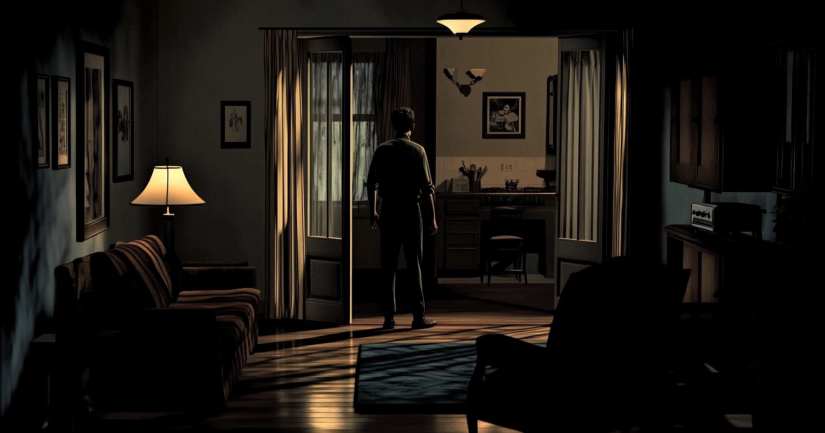
Explore the complex characters of Arthur Miller’s iconic play with our Death of a Salesman Character Matching Quiz, Test Your Understanding of Arthur Miller’s Complex Characters. The Death of a Salesman Character Matching Quiz challenges your ability to correctly identify the motivations, struggles, and relationships of each key figure in Arthur Miller’s tragic play. Every character in Death of a Salesman serves a critical role in exploring themes of disillusionment, self-worth, and the American Dream’s false promises. From Willy Loman’s self-deception to Biff’s painful journey toward truth, this quiz will test your knowledge of character dynamics, symbolism, and psychological depth.
Willy Loman, the aging, disillusioned salesman, clings to a belief in success built on personality rather than hard work. He idolizes men like Dave Singleman, who achieved financial security through sheer likability, yet fails to see how his outdated ideals no longer apply in a changing society.
Now that you’ve matched the characters, do you know which one you’re most like? Find out with the Which Death Of A Salesman Character Are You Quiz. If you’re aiming for a perfect score, strengthen your understanding of Miller’s dialogue with the Death Of A Salesman Vocabulary Quiz. And if you’re ready to put everything together, take on the Death Of A Salesman Full Book Quiz.
Ready to Begin the Death Of A Salesman Character Matching Quiz?
Willy Loman: The Tragic Dreamer
His mind fractures under the weight of failure, leading to hallucinations, flashbacks, and suicidal thoughts. Despite his devotion to providing for his family, his misguided values ultimately harm those closest to him. His tragic flaw lies in his refusal to accept reality, choosing self-delusion over self-awareness.
Biff Loman: The Disillusioned Son
Biff, once a star athlete with a promising future, experiences a harsh awakening after discovering Willy’s infidelity. This revelation shatters his belief in his father’s greatness, leading to a lifetime of drifting and unfulfilled potential.
Unlike Willy, Biff comes to terms with the truth in Act 2, realizing that his father’s dreams were empty illusions. His final confrontation with Willy marks a moment of brutal honesty, where he rejects the false ideals imposed upon him and embraces self-acceptance.
Happy Loman: The Delusional Optimist
Happy Loman, though seemingly more stable than Biff, inherits Willy’s worst traits. He prioritizes status, womanizing, and empty success, mirroring his father’s obsession with superficial achievements. Despite witnessing Willy’s downfall, he refuses to abandon the illusion, declaring he will fulfill his father’s dream—a decision that dooms him to the same fate.
Linda Loman: The Loyal Enabler
Linda Loman remains Willy’s most steadfast supporter, defending him despite his erratic behavior and financial failures. She understands his pain but refuses to challenge his delusions, making her both his protector and enabler. Her final line, “We’re free… we’re free,” tragically underscores the irony of Willy’s sacrifice, as financial security comes only at the cost of his life.
Ben Loman: The Ghostly Success Symbol
Ben, Willy’s wealthy, adventurous brother, appears as a symbol of everything Willy wishes he could be. He represents an alternative path to success—one based on risk-taking rather than conformity. His ghostly presence reinforces Willy’s obsession with proving himself, ultimately influencing his suicidal decision.
Charley and Bernard: The Voices of Practical Success
Charley, Willy’s neighbor and only true friend, offers rational advice and financial help throughout the play. Unlike Willy, Charley values hard work over charisma, proving that success does not rely on illusions.
Bernard, once a nerdy, bookish teenager, grows into a successful lawyer, contrasting sharply with Biff’s wasted potential. His character challenges Willy’s flawed belief that personality matters more than discipline.
The Woman: The Breaking Point of Biff’s Disillusionment
The Woman, Willy’s mistress, serves as the symbol of his moral weakness. When Biff discovers Willy’s affair, it destroys his idealized vision of his father, marking the turning point in their relationship. Her presence in Willy’s memories highlights his guilt and internal conflict.
How Well Do You Know the Characters of Death of a Salesman?
Every character in Death of a Salesman plays a critical role in Miller’s critique of the American Dream, self-worth, and generational conflict. Whether you are analyzing Willy’s psychological struggles, Biff’s transformation, or Linda’s quiet suffering, this quiz will test your ability to match each character to their defining traits and role in the play.
Take the Death of a Salesman Character Matching Quiz and see how well you understand the tragic figures in Arthur Miller’s timeless drama!
Death Of A Salesman Quizzes: Explore the American Dream’s highs and lows …
Death Of A Salesman Characters – FAQ
Willy Loman is the main character in Arthur Miller’s play. He is a struggling salesman facing the harsh truth that his life and career didn’t meet his expectations. Willy embodies the pursuit and failure of the American Dream, confronting aging and unmet ambitions.
Linda Loman is Willy’s devoted and supportive wife. She serves as the family’s stabilizing force, often easing tensions between Willy and their sons. Linda shows deep love and patience, fully aware of Willy’s flaws and struggles. Her character highlights themes of sacrifice and the emotional weight of family loyalty.
Biff and Happy Loman, Willy’s sons, have different views on success. Biff, the older son, rejects the shallow values his father taught and seeks a more genuine life. Happy, on the other hand, wants to emulate Willy, pursuing material success and approval. Their differences create tension and emphasize the play’s critique of traditional success.
Ben Loman, Willy’s deceased brother, symbolizes the success Willy craves. A self-made man who found fortune in Africa, Ben appears in Willy’s memories and visions, representing missed opportunities. His success inspires and haunts Willy, highlighting the allure and danger of idealized dreams.
Charley, Willy’s neighbor and only friend, offers a realistic counterpoint to Willy’s dreams. He provides financial help and support, symbolizing a more practical approach to life. Through Charley, the play explores friendship, generosity, and the challenge of accepting reality over illusion.
